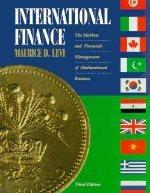Question
Chad Boudreaux is a 58-year riverboat captain. He grew up in New Orleans and has worked on the Mississippi River his entire life. He works
Chad Boudreaux is a 58-year riverboat captain. He grew up in New Orleans and has worked on the Mississippi River his entire life. He works for a private company in New Orleans called Crescent River Pilots Inc. (CRP) and is married to Patricia, who is 35 years old. They have a seven-year-old son, named River. CRP sponsors a 401(k) plan that offers a Roth account and a separate ESOP. Chad has the following retirement plan accounts:
| Account Description | Current FMV | Beneficiary |
| ESOP account from CRP consists of CRP shares. The cost basis for the shares is $75,000. | $400,000 | Patricia |
| 401 (k) Plan From CRP Inc. | $800,000 | Patricia |
| 401 (k) Plan from Schlumberger, where he worked in his thirties | $90,000 | Patricia |
| Roth IRA (established in 2000 with a $2000 initial contribution; three years ago he rolled over a traditional IRA with a balance of $10,000 | $45,000 | Patricia |
| Traditional IRA (established twenty years ago with $15,000 of after-tax contributions) | $90,000 | River |
| Inherited IRA from the death of his Mama. She died in the same year Chad turned 50 years old. | $120,000 | River |
D. In the balance in Chad's Mom's IRA was $120,000 at the end of last year and $140,000 at the end of this year, how much, if any, must he take out from this account to satisfy the minimum distribution rules?
E. If Chad were to die and River was to inherit the inherited IRA, how would he comply with the minimum distribution rules?
F. Assuming Chad decided to take out the entire balance in the Roth IRA to purchase a new fishing boat, how would the distribution be taxed?
G. If chad took a $20,000 distribution from his traditional IRA to pay for the vacation, what are the tax implications?
H. If chad retire, what should he do with the CRP shares and why?
I. If Chad were to die, what options would Patricia have for satisfying the minimum distribution rules on the Roth IRA account?
J. Assume Chad takes a distribution of the CRP stock several years from now when the stock is valued at $500,000. A few years later, Chad has a terrible accident and dies. The value of the CRP stock at the time of his death is $700,000. Patricia inherits the stock and sells it six months later after Chad dies for $800,000. What are the tax implications of the sale?
Step by Step Solution
There are 3 Steps involved in it
Step: 1

Get Instant Access to Expert-Tailored Solutions
See step-by-step solutions with expert insights and AI powered tools for academic success
Step: 2

Step: 3

Ace Your Homework with AI
Get the answers you need in no time with our AI-driven, step-by-step assistance
Get Started


